Masada
Introduction
Throughout the 70's and 80's, the mini series was an American TV staple. Dating from about 1974, the concept is a series that is less than the typical US concept of a TV series (i.e from two to thirteen episodes) but with a defined beginning, middle and end. We only use the term over here when describing US imports as British TV series are inevitably much shorter than the typical 20+ block of episodes that make up a US TV series season. The mini series is still very much around, see Band of Brothers for example or the more recent redux of The Andromeda Strain, and is generally of the blockbuster variety and an adaptation of a book.
In 1981, a new mini series came along that was based on a book (oddly enough) called The Antagonists by Ernest K. Gann and was of almost biblical swords and sandals epic proportions. Masada was the tale of 980 Jews who were besieged in the mountain top fortress of Masada in Judea by the 5,000 Romans of the 10th Legion, a true story albeit with some twisting of historical facts.
It's 70AD and the Romans have attacked Jerusalem and set fire to the second Temple. Led by Eleazar ben Yair (Peter Strauss), a band of Jews make for the fortress of Masada, pursued by Roman commander General Cornelius Flavius Silva (Peter O'Toole). The two crossed swords early on, with Sliva promising to take terms for peace in the region to current Caesar, Emperor Vespesian (Timothy West), but things have changed in Rome politically and Vespesian cannot give concessions without losing face and potentially his fragile power base.
Thus Silva has no option but to mount a strong campaign against the Jews, leading to the infamous siege at Masada. With the stronghold too high for a conventional siege, the plan of attack was to build a massive ramp up the side of the mountain in order to drag a tower right up to the side wall. It was a massive undertaking that would stretch the Roman 10th Legion massively in terms of both morale and men.
The mini series (which I remember watching during it's original broadcast) won Golden Globes for both Peter O'Toole and Peter Strauss, as well as best mini series in 1982. David Warner and composer Jerry Goldsmith won Emmy's the year before for best supporting actor and best composer.
It should be noted that this release will be a HMV exclusive until January 2009.
Visual
The picture is 4:3 and is a soft picture with some grain but also a fair amount of print damage. This series features some of Albert Whitlock's fine matte painting shots but on the flip side also features some rather obvious stage sets alongside the stunning if barren desert location work.
Audio
Soundtrack is mono and there are no subtitles. Jerry Goldsmith's score is a grand and sweeping orchestral score, but is not given space to soar by having to run through only the centre speaker.
Extras
Nothing.
Overall
Masada is long, have no doubt about that. There are four episodes, each of an hour and a half in length. Be prepared for a sore bum and a slow moving story, but ultimately rewarding nonetheless. Peter O'Toole and Peter Strauss make fine leads; O'Toole with lots of eyeliner and a pair of boxing boots, Strauss as an almost biblical Colonel Hannibal Smith but surrounded by a band of merry men that wouldn't have looked out of place in Sherwood Forest a dozen or so centuries later.
In keeping with the mini series tradition, this piece is full of big dramatic gestures and overacting, it also follows the grand Hollywood style of using British actors as the bad guys, in this case the Romans. Whilst O'Toole's character (alongside a few of his Officers) is shown as humane and caring, the remainder of his troops and the politicians in the Senate are virtually all British and scheming bad guys. Thus there are appearances for Timothy West, Michael Elphick, Anthony Quayle, Christopher Biggins, Warren Clarke, Nigel Davenport, Jack Watson and a host of others.
In all honesty, this could do with being cut down a bit as there are long stretches where not much happens. On the other hand, the studio butchered the mini series in 1995 down to a miserly 131 minutes for its VHS release, which is way too short to do this justice.
Slightly overblown, but an epic in all sense of the word.
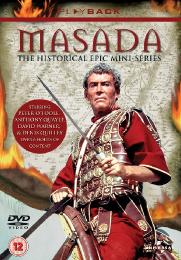
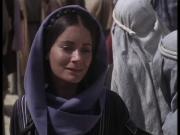
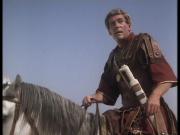
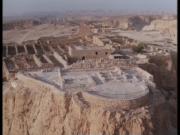
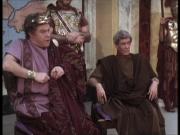
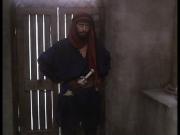
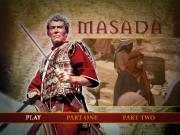
































Your Opinions and Comments
Be the first to post a comment!